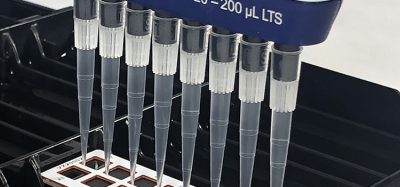Regeneron and Sanofi announce positive Phase 2b dupilumab data in asthma
Posted: 19 May 2015 |
Regeneron and Sanofi have shared positive results from an interim analysis of a pivotal Phase 2b study of dupilumab in adult patients with moderate to-severe asthma, who are uncontrolled despite treatment with inhaled corticosteroids and long-acting beta agonists (ICS/LABA).


Dupilumab is an investigational therapy that inhibits signalling of IL-4 and IL-13, two cytokines required for the TH2 (or Type 2) immune response.
As previously reported, the study met its primary endpoint of improving lung function in asthma patients with high blood eosinophil counts (HEos). New data presented on secondary endpoints at the American Thoracic Society 2015 International Conference included positive results in study patients with low blood eosinophil counts (LEos), who are thought to be less likely to suffer from “allergic” asthma and thus less likely to respond to TH2 targeted therapies.
The new results focused on LEos asthma patients. In this population, patients treated with either 200 mg or 300 mg doses of dupilumab showed a greater than 8% improvement in forced expiratory volume over one second at Week 12, in comparison to placebo, both in combination with ICS/LABA. Additionally, the 200 mg and 300 mg doses of dupilumab in combination with ICS/LABA showed 68% and 62% reductions, respectively, in adjusted annualised rate of severe exacerbations in the LEos population, in comparison to placebo.
These results are consistent with previously reported positive results in HEos asthma patients and the overall patient population, in which the doses of dupilumab in combination with ICS/LABA demonstrated a statistically significant 12 to 15% improvement in forced expiratory volume over one second over placebo at Week 12 and a 64 to 75% improvement in annualised rate of severe exacerbations over placebo.
Dupilumab also significantly reduced mean fractional exhaled nitric oxide (FeNO) across both doses tested and the three patient populations (overall, LEos and HEos), in a roughly dose-dependent manner. FeNO is recommended by the American Thoracic Society clinical practice guidelines to assess airway inflammation, since higher than normal levels of nitric oxide may be released when a patient has a chronic airway disease, such as asthma.
A Phase 3 trial of dupilumab in patients with uncontrolled persistent asthma has been initiated
“Despite available treatments, many patients with asthma continue to have symptoms and recurring attacks, which have a serious and detrimental impact on their daily lives,” said Sally Wenzel, M.D., lead investigator from The University of Pittsburgh, Division of Pulmonary, Allergy and Critical Care Medicine. “In the study, dupilumab added to standard-of-care therapy demonstrated fewer exacerbations and improved lung function across both the high and low baseline eosinophil groups. We look forward to the continued clinical development of dupilumab as a potential option for a broad population of patients with uncontrolled asthma.”
Based on discussions with the US Food and Drug Administration (FDA), this Phase 2b study may be considered one of two pivotal efficacy studies required for a potential dupilumab Biologics License Application (BLA) in asthma. The companies also announced the initiation of a Phase 3 clinical trial of dupilumab in patients with uncontrolled persistent asthma, known as LIBERTY ASTHMA QUEST, which will serve as the second required pivotal efficacy study. The global, placebo-controlled Phase 3 study will enroll more than 1,600 patients with uncontrolled persistent asthma and will evaluate two doses of dupilumab, 200 milligrams (mg) and 300 mg, subcutaneously administered every other week.








